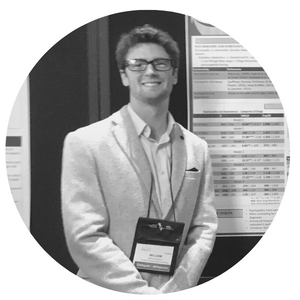One Does Not Simply Stop Using: The Importance of Withdrawal in Discussion of Addiction Treatment and Harm Reduction
 This talk will walk through our current scientific knowledge of how experiences of drug use and withdrawal can impact substance use and abuse. How and why do some people use (and even abuse) addictive substances? What steps can we take to reduce the stigma around drug use — and increase our ability to safely and effectively treat substance abuse? This talk will offer important context to further understanding our current issues with problematic substance use.
This talk will walk through our current scientific knowledge of how experiences of drug use and withdrawal can impact substance use and abuse. How and why do some people use (and even abuse) addictive substances? What steps can we take to reduce the stigma around drug use — and increase our ability to safely and effectively treat substance abuse? This talk will offer important context to further understanding our current issues with problematic substance use.
This event was held October 4, 2021
Bottom photo in event image by Dan Meyers on Unsplash
Speaker bio:
 Mr. Denomme (he/him) is an award-winning PhD student in the Forensic Psychology program at Ontario Tech University. His research examines how innovative technologies like neuroimaging and machine-learning algorithms can help us understand cocaine use and withdrawal. Mr. Denomme also works part-time with the Department of National Defence of Canada, researching worker well-being among both military and civilian personnel in the Canadian Armed Forces.
Mr. Denomme (he/him) is an award-winning PhD student in the Forensic Psychology program at Ontario Tech University. His research examines how innovative technologies like neuroimaging and machine-learning algorithms can help us understand cocaine use and withdrawal. Mr. Denomme also works part-time with the Department of National Defence of Canada, researching worker well-being among both military and civilian personnel in the Canadian Armed Forces.
In case you missed it: